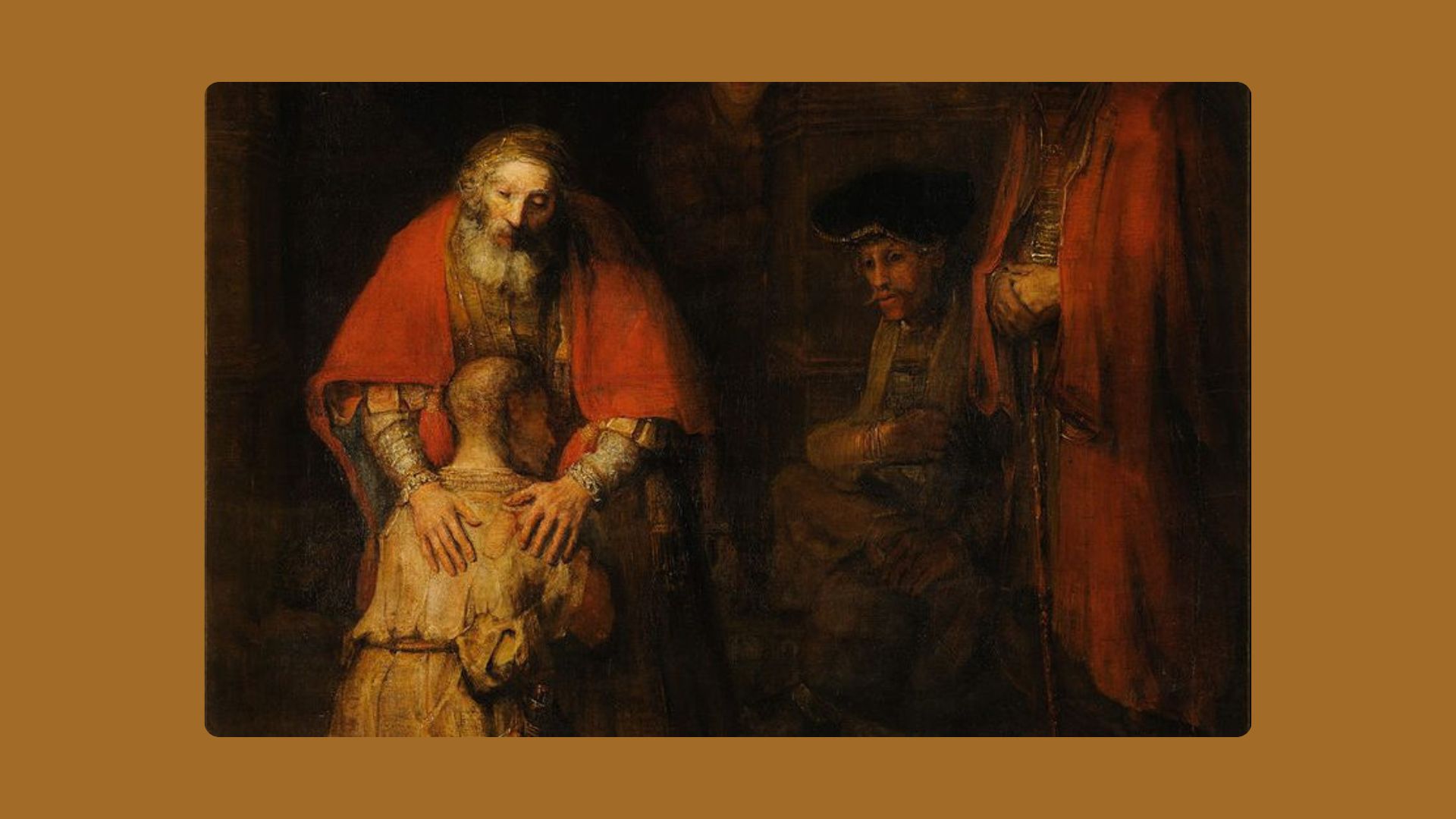The Myth of Complete Autonomy
In his book The Abolition of Man, [C. S.] Lewis warned that moral relativism (the denial of universal and objective moral truths and principles), foolish emotionalism, and the rejection of reason would bring about cultural decay and growing depravity. When societies fail to teach morality and train the hearts of men to embrace and emulate virtuous behavior, they produce “Men without Chests,” individuals who are intelligent but behave like animals—men who don’t practice the virtues and are controlled by their appetites.…Many decades have passed since Lewis wrote his book, and things have gotten much worse. While mainstream secular society still maintains that honor, ethics, and integrity matter, it has increasingly attacked, silenced, or destroyed those institutions and organizations that used to teach moral principles and universal truths that instilled honor and character into men’s hearts and souls.
—Chris Banescu in 2016—
In a sort of ghastly simplicity we remove the organ and demand the function. We make men without chests and expect of them virtue and enterprise. We laugh at honour and are shocked to find traitors in our midst. We castrate and bid the geldings be fruitful.
—C. S. Lewis in The Abolition of Man, published in 1943
View summaries of all the articles in this series here.
Zig Ziglar (1926-2012), a motivational speaker and author who inspired millions, readily admitted that life is tough. Yet “[w]hen you are tough on yourself,” he would say, “life is going to be infinitely easier on you.”
When you are tough on yourself, life is going to be infinitely easier on you.
—Zig Ziglar—
Zig was right. It was his way of saying that recognizing and cooperating with the world as it really is sets the stage for a person not only to do well in it, but also to thrive in it and to enjoy life to its fullest. A key idea here is that of discipline, and a related key concept is a recognition of authority, including absolute truth.
Sadly, the philosophy of relativism, which denies the existence of absolutes, is wreaking havoc in people’s lives and in society as a whole. Why? In saying each individual person can make up and follow his or her own truth, relativism discourages discipline and the acknowledgement of any authority outside of oneself. It is a formula for disaster because it denies reality.
The Bible speaks straightforwardly about these things, and in this post I’d like to examine just a few Bible passages that address the matter. Even a person who doesn’t believe the Bible to be the inspired Word of God cannot deny the practical realities it affirms. Freedom to follow one’s feelings brings consequences that can be both harsh and inflexible.
Wasteful Living Produces a Wasted Life
In Luke 15:11-24, Jesus gave what has become one of His best known parables, the Parable of the Lost Son. Apparently following every impulse, desire, and whim he felt, a young man demanded his inheritance early and then, in “a far country,…wasted his possessions with prodigal living” (v. 13). Such behavior could not, and did not, continue indefinitely. When the young man “had spent all, there arose a severe famine in that land, and he began to be in want. Then he went and joined himself to a citizen of that country, and he sent him to his fields to feed swine. And he would gladly have filled his stomach with the pods that the swine ate, and no one gave him anything” (vv. 14-16).
 This is the turning point of the story. He “came to himself” (v. 17) and resolved to go home to his father and ask to be taken on as a hired servant. When the father saw his son return, he welcomed him gladly and even threw a party to celebrate (see vv. 20-24). Jesus’ parable illustrates vividly that a person can follow his own whims but that reality eventually will hit. In other words, A person is free to follow his or her feelings, but not without consequences. The idea of complete personal autonomy is a myth! Unfortunately, in 21st-century America, it’s a myth that’s exacerbated because society and culture, often through government, frequently attempt to “rescue” people from the negative consequences of their irresponsible behavior. This dynamic is worthy of exploration in a future post, but for now, note that if not mitigated, the consequences actually can teach valuable lessons. The father in Jesus’ parable actually saved his son by not intervening to “rescue” him!
This is the turning point of the story. He “came to himself” (v. 17) and resolved to go home to his father and ask to be taken on as a hired servant. When the father saw his son return, he welcomed him gladly and even threw a party to celebrate (see vv. 20-24). Jesus’ parable illustrates vividly that a person can follow his own whims but that reality eventually will hit. In other words, A person is free to follow his or her feelings, but not without consequences. The idea of complete personal autonomy is a myth! Unfortunately, in 21st-century America, it’s a myth that’s exacerbated because society and culture, often through government, frequently attempt to “rescue” people from the negative consequences of their irresponsible behavior. This dynamic is worthy of exploration in a future post, but for now, note that if not mitigated, the consequences actually can teach valuable lessons. The father in Jesus’ parable actually saved his son by not intervening to “rescue” him!
Different Paths Lead to Different Destinations
It’s noteworthy that the lost son chose to travel down one of two paths and when reality hit, changed his thinking and behavior. In other words, he moved to travel down a different road! His decision to change course made a profound positive difference in his life. As we indicated in part 1 of this series, relativism compels people to go their own way rather than God’s way. These two paths don’t just offer different journeys, but also different destinations.
A tombstone in a cemetery in Indiana bears this epitaph:
Pause, stranger, when you pass me by:
As you are now, so once was I.
As I am now, so you will be.
So prepare for death and follow me.
The words attracted the attention of a visitor to that cemetery. The visitor scribbled these words underneath the verse etched in stone.
To follow you I’m not content,
Until I know which way you went.
Jesus warned His hearers, “Enter by the narrow gate; for wide is the gate and broad is the way that leads to destruction, and there are many who go in by it. Because narrow is the gate and difficult is the way which leads to life, and there are few who find it.”
Inspired by God, King Solomon offered a similar warning in Proverbs 14:12 and 16:25: “There is a way that seems right to a man, But its end is the way of death.”
There is a way that seems right to a man, But its end is the way of death.
—King Solomon of Israel—
All of us eventually will die physically, of course, but Solomon’s advice refers to something broader and bigger than even this. When Moses relayed God’s challenge to His chosen people who were about to enter into the promised land, he, too, encouraged them to choose life over death.
I call heaven and earth as witnesses today against you, that I have set before you life and death, blessing and cursing; therefore choose life, that both you and your descendants may live; that you may love the Lord your God, that you may obey His voice, and that you may cling to Him, for He is your life and the length of your days; and that you may dwell in the land which the Lord swore to your fathers, to Abraham, Isaac, and Jacob, to give them (Deut. 30:19-20).
Choosing life involves not only selecting a path that leads to life, but also living lives consistent with that choice. The Bible affirms that salvation costs us nothing. Even so, it requires everything of us.
The High Cost of Choosing a Discipline-Free Path
 Let’s examine two additional passages that caution against doing whatever one feels like doing. The Bible indicates that adultery is an act with very dire consequences. Keep in mind that a person involves himself in an extra-marital affair precisely because he or she is following personal feelings, impulses, and instincts. Solomon wrote,
Let’s examine two additional passages that caution against doing whatever one feels like doing. The Bible indicates that adultery is an act with very dire consequences. Keep in mind that a person involves himself in an extra-marital affair precisely because he or she is following personal feelings, impulses, and instincts. Solomon wrote,
27 Can a man take fire to his bosom,
And his clothes not be burned?
28 Can one walk on hot coals,
And his feet not be seared?
29 So is he who goes in to his neighbor’s wife;
Whoever touches her shall not be innocent (Prov. 6:27-29).
The analogy here is particularly jarring, even alarming. Just as placing hot coals in one’s lap and bringing a flame close to his chest is certain to set his clothes—and him—on fire, so too will adultery exact a severe price from those who engage in it.
Returning to the the New Testament, we see another depiction of the consequences of following one’s own inclinations rather than a clear principle or revealed truth. Examine Romans 1:18-25 closely. Note Paul’s use of the themes truth and lie.
- The apostle used the word truth in verses 18 and 25.
- By speaking of people who suppress the truth in verse 18, Paul alluded to their following a lie instead; and he used the Greek term for lie in verse 25. The term for lie— “pseudos,” from which we get our English prefix pseudo —broadly means “whatever is not what it seems to be.” Once again, we recall Proverbs 14:12 and 16:25.
A lie may soothe and the truth may frustrate, but in the end, the former will be an enemy and the latter a friend.
Relativism is the way of a lie, but God’s way is the way of truth. A lie may soothe and the truth may frustrate, but in the end, the former will be an enemy and the latter a friend (see Prov. 27:6). Anyone and everyone will do well to heed the truth and reject the lie.
That’s just the way it is.
Next week, we’ll consider an illustration that vividly demonstrates the myth of compete personal autonomy. Be sure to return!
Part 7 is available here.
Copyright © 2017 by B. Nathaniel Sullivan. All rights reserved.
top image: Rembrandt, The Return of The Prodigal Son
Unless otherwise indicated, Scripture has been taken from the New King James Version®. Copyright © 1982 by Thomas Nelson, Inc. Used by permission. All rights reserved.


Be First to Comment